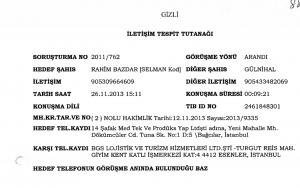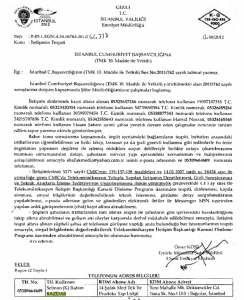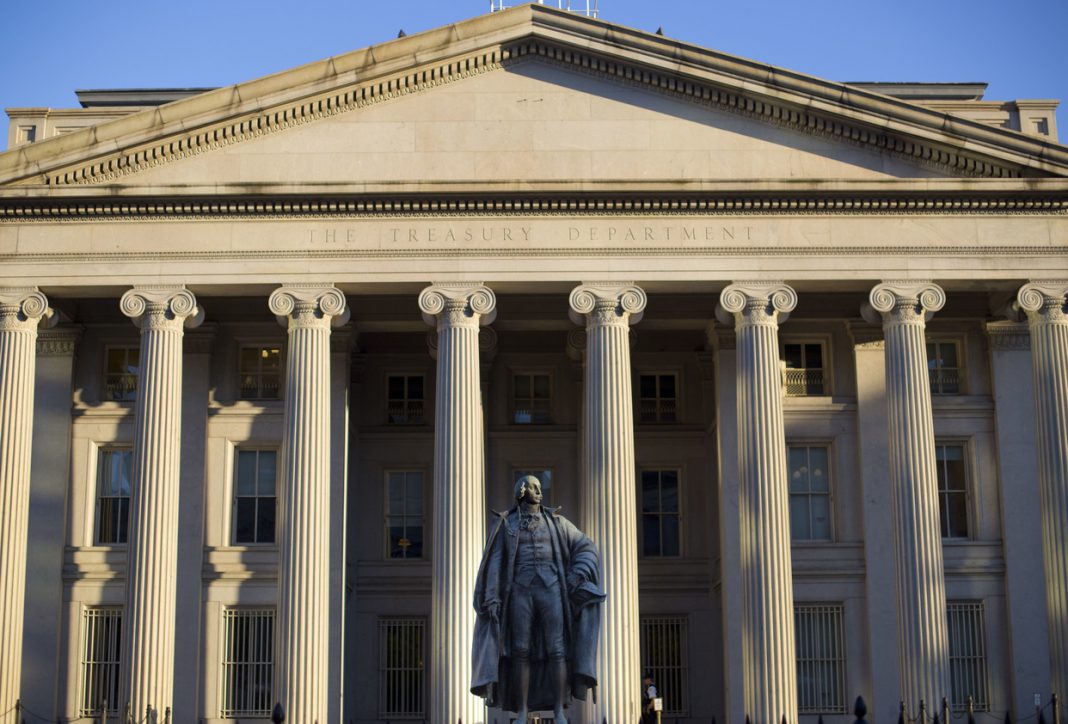[avatar user=”ABozkurt” size=”thumbnail” align=”left” link=”file” /]
Abdullah Bozkurt
The United States Treasury has named an Iran-sanction-busting Turkish citizen and several companies in Istanbul as Specially Designated Global Terrorists (SDGTs) under an executive order that targets terrorists and those providing support to terrorists or acts of terrorism. The move is significant because of the potential fallout that could drag the government of President Recep Tayyip Erdoğan into yet another scandal which could very well lead to a second criminal prosecution by US authorities.
In 2014 Erdoğan, who has maintained close links to the Islamic Revolutionary Guards Corps (IRGC), hushed up a comprehensive, three-year-long investigation into the IRGC’s Quds Force activities in Turkey. The confidential investigation named top IRGC operatives as suspects, uncovered Turkish operatives, revealed Iran’s intelligence assets including some senior government officials and exposed how Erdoğan personally greeted an IRGC general, a lead suspect in the case. Investigators, prosecutors and judges who were involved in this criminal probe were all sacked and later arrested on trumped-up charges to save the IRGC from a major crackdown in NATO’s frontier ally, Turkey.

In 2013 Turkish investigators stumbled upon Gülnihal Yegane, the Turkish national designated by the US Treasury, while they were conducting surveillance on a suspect named Rahim Bazdar (aka Selman, holding passport number Y21101017), an Iranian national who was working for the IRGC. The Istanbul prosecutors’ investigation file No.2011/762 includes a wiretap transcript that shows Yegane talking to Bazdar on Nov. 26, 2013. The wiretap, authorized by an Istanbul court, reveals how Yegane fulfilled purchase orders and procured parts after a request by Ali Kiaasat Far, another IRGC operative working the cover of a deputy cultural attaché at Iran’s Istanbul consulate. The conversation involves a payment dispute after Yegane purchased items requested by Kiaasat and paid for them before receiving payment from the Iranian side. She was complaining to Bazdar that the payment had not yet been made to her.
Therefore, it was not surprising to see her name listed by the US Department of the Treasury’s Office of Foreign Assets Control (OFAC) on May 24, 2018 as a person who secured export-controlled US-origin goods for sanctioned Iranian airlines. Along with companies RA Havacilik and 3G Lojistik, Yegane and her company, Trigron Lojistik, were designated “for enabling designated Iranian airline Mahan Air to secure key aviation goods and services and sustain its fleet of Western-manufactured aircraft.” Mahan Air was sanctioned in 2011 for providing financial, material and technological support to the IRGC Quds Force. OFAC’s designations came after action by the US Department of Commerce’s Bureau of Industry and Security (BIS) issued a Temporary Denial Order against Yegane, her firm Trigron and RA Havacilik, on February 2, 2018 for violation US export regulations.
Bazdar, an Iranian contact for US-designated Yegane, had been under physical surveillance according to court documents that show several warrants were obtained from judges who authorized physical surveillance on Bazdar in 2013 in addition to communication wiretaps. Investigators were able to map out his web of links and who else he had been meeting in various locations in Istanbul. Video footage and still shots from the surveillance were included in the case file. Bazdar was even stopped at Istanbul Atatürk Airport upon his return to Turkey with his family on May 22, 2013, and his luggage was searched under the pretext of drug screening at the airport to find out more about his dealings.

Looking at how the Turkish investigation had evolved and expanded since it was first launched in 2011, Yegane would most likely be listed as a suspect after prosecutors found out she was involved with other suspects in a case that was called in Turkish Tevhid-Selam, a network that was listed as a terrorist group by Turkey and closely affiliated with the IRGC Quds Force. Three weeks after she was identified in the wiretap, a separate investigation that looked into a major corruption network involving another Iranian sanctions buster, Reza Zarrab, who bribed senior government officials including Cabinet ministers and cultivated personal ties with Erdoğan, was made public on Dec. 17, 2013. Dozens of suspects including Zarrab were detained and later arrested for violating several Turkish laws.
Erdoğan, who was incriminated in the probe, stepped in to derail the prosecution and helped release all the suspects after he orchestrated the removal of the lead prosecutors and investigators in the case. All suspects including Zarrab were later acquitted by new judges who were brought in to oversee the case by the Erdoğan government. However, Zarrab was arrested by the FBI in Miami in 2016 and charged by the US Attorney for the Southern District of New York with engaging in hundreds of millions of dollars’ worth of transactions on behalf of the Iranian government, money laundering and bank fraud. He cut a bargain with prosecutors and decided to cooperate in a US federal case that exposed the role of Erdoğan, who had instructed Turkish state banks to participate in the multi-billion dollar scheme in exchange for kickbacks.
Fearing another, perhaps more devastating, revelation against his government in the Tevhid-Selam case, Erdoğan moved in to hush up the IRGC Quds Force probe before it turned into an indictment, trial and conviction. Yegane and many others including senior IRGC generals tasked with operating in Turkey on missions ranging from terror plots to circumventing US and UN sanctions on Iran were saved by Erdoğan. As a result, the Turkish criminal justice system was crippled and prevented from going after a terror network that killed many Turkish as well as foreign nationals in Turkey in the 1990s. With the US Treasury’s action, this has come back to haunt the Turkish president. He thought he had buried the investigation by locking up people who had done their job in uncovering a major terror network in Turkey that was funded, armed and supported by the IRGC Quds Force.
It is mind boggling to see that Turkish judicial authorities and administrative bodies were prevented by the Erdoğan government from going after and cracking down on clandestine IRGC activities in Turkey, a threat first and foremost to Turkish national security before anything else. Nevertheless, whereas Turkey was unable to clean up Erdoğan’s dirty acts, the United States appears to be filling the void. The question remains whether the US actions will nudge Turkey into correcting course on Iran. My short answer is that as long as Erdoğan continues to rule Turkey, I don’t think that will be possible. He will try to undermine the interests of Turkey and its allies for personal benefit every chance he gets.
His rushing to defend Iran’s nuclear program publicly in recent weeks by repeatedly saying that nuclear armed powers must give up their weapons first before asking Iran to yield its own — which is a complete U-turn for traditional Turkish foreign policy — tells a lot about the mindset of this Islamist dictator who has been sleeping with Turkey’s enemy.

